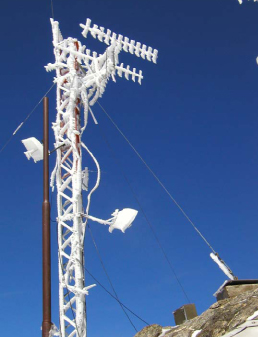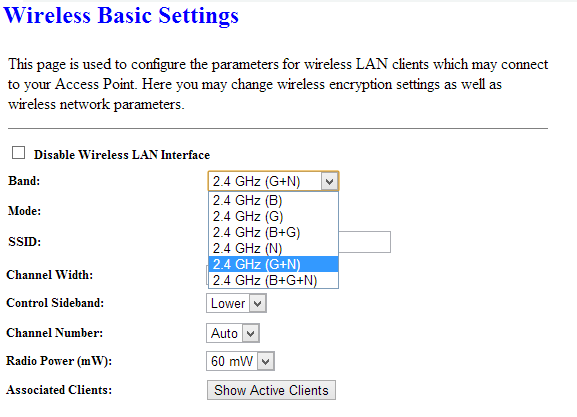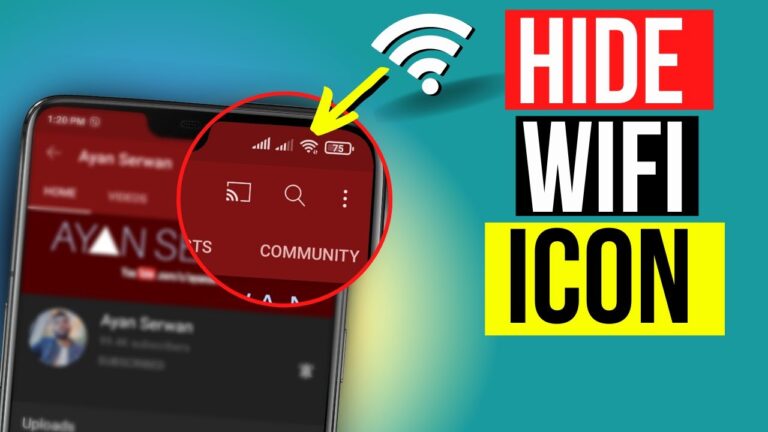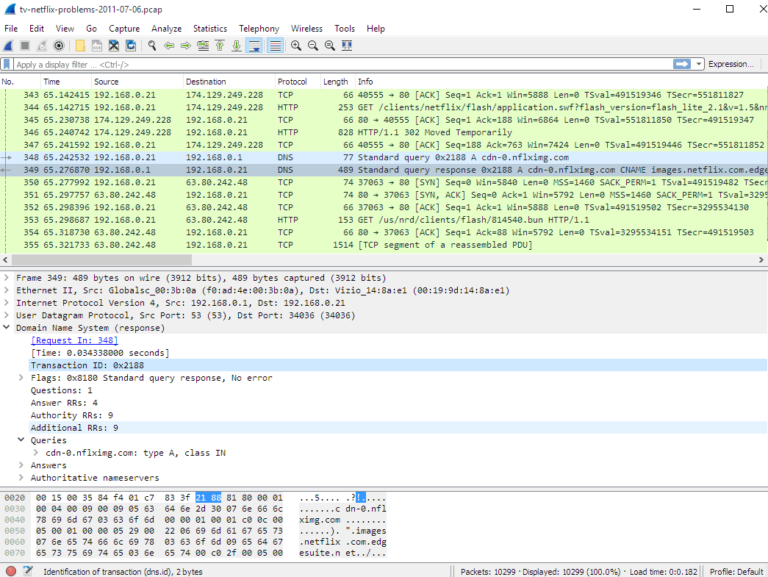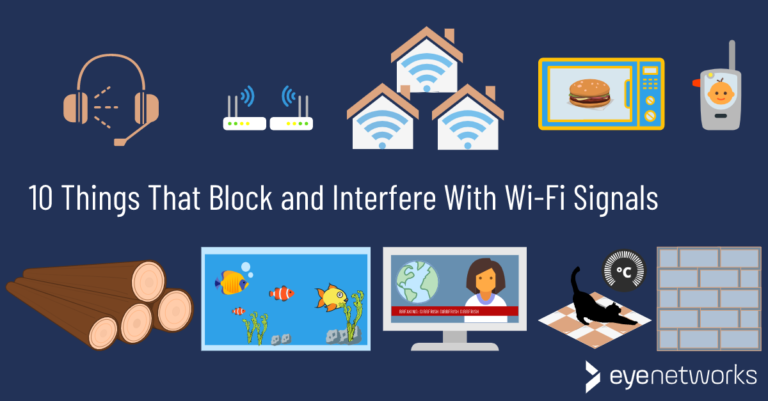Can Walls Block Wi-Fi?
Wireless signals, such as Wi-Fi, are able to penetrate walls to some degree. Wi-Fi signals are made of radio waves, which are electromagnetic fields that can travel through walls. The amount of penetration depends on the type of material used to construct the wall. For example, thick concrete walls will block the radio waves more effectively than thin wooden walls. Wi-Fi signals can also be weakened by other sources of interference, such as other Wi-Fi networks in the area. As a result, it is possible for walls to block Wi-Fi signals, but the effectiveness of the blocking will depend on the materials used and the amount of interference in the area.
Understanding Wi-Fi
and walls
Wi-Fi is a wireless technology used to connect devices to the internet. It works by sending and receiving radio waves to and from a router that is connected to the internet. Walls are physical barriers between two points and can be used to block signals. So, the answer to the question of whether walls can block Wi-Fi is: it depends.
The effectiveness of walls in blocking Wi-Fi depends on the type of wall, the type of Wi-Fi router, and the signal strength of the Wi-Fi router. For example, metal walls can be more effective in blocking Wi-Fi than wooden or glass walls. Additionally, the strength of the Wi-Fi signal can also determine how effective a wall is in blocking it. The weaker the signal strength, the more effective the wall will be in blocking it.
To ensure that your Wi-Fi signal is not blocked by walls, it is important to consider how your walls are constructed and the type of router you are using. It is also important to keep the Wi-Fi signal strength as strong as possible to ensure that it will not be blocked. With the right setup, Wi-Fi can be effectively transmitted through walls, even if they are made of metal.
The Impact of Walls on Wi-Fi
Signals
Wi-Fi has become an essential part of our everyday lives; from streaming movies to surfing the web, it’s no surprise that the demand for reliable, fast Wi-Fi has been steadily increasing over the years. But what most people don’t think about is how walls can affect the performance of their Wi-Fi network. In this article, we’ll explore the impact of walls on Wi-Fi signals and what steps you can take to ensure your network remains strong and reliable.
First, let’s look at the basics of how Wi-Fi works. Wi-Fi signals travel through the air in the form of electromagnetic waves, and these waves can be affected by the environment they traverse. Walls, for example, can block or reduce the strength of the signal, making it difficult for the signal to reach the end device. Additionally, walls can act as a shield, reflecting the signal and causing the signal to scatter, which can further reduce the reach of your Wi-Fi network.
So, what can you do to ensure your Wi-Fi network remains strong and reliable? The best option is to use an 802.11ac router, as these routers are designed to be more effective at penetrating walls and delivering stronger, more reliable signals. Additionally, you can use a wireless range extender to boost the signal and increase the range of your Wi-Fi network. Finally, if you’re in an area with a lot of walls, you can use a mesh network, which consists of multiple access points that are strategically placed throughout the area to ensure maximum coverage.
Therefore, while walls can certainly have an impact on your Wi-Fi signal, there are steps you can take to ensure your network remains strong and reliable. With the right router, range extender, and/or mesh network, you can ensure that your Wi-Fi signals are able to penetrate walls and reach their intended destination.
Wi-Fi Frequency and Walls
Wi-Fi is a popular technology that many of us rely on to stay connected. But have you ever wondered if walls can affect Wi-Fi signals? The answer is yes, walls can affect Wi-Fi signals. This is because walls can block or absorb the radio waves that Wi-Fi signals are made of. The amount of interference that a wall can cause depends on the material of the wall, the type of Wi-Fi frequency being used, and the thickness of the wall.
For instance, concrete walls are more likely to cause interference than wooden walls. Walls also block low frequencies more than high frequencies, so if you’re using a low-frequency router it’s more likely to be affected by walls. The thickness of a wall can also make a difference, as thicker walls can block more signal than thinner walls.
Ultimately, the best way to ensure your Wi-Fi signal is not affected by walls is to use a high-frequency router and keep the walls as thin as possible. Additionally, you can use a Wi-Fi range extender or repeater to increase the signal strength if the walls are too thick. By following these tips, you can maximize the signal strength of your Wi-Fi and ensure that it is not affected by walls.
Wi-Fi Antennas and Walls
The short answer to the question ‘can walls block Wi-Fi?’ is yes. Walls and other physical structures are capable of blocking wireless signals, preventing them from reaching their intended destination. The severity of the signal loss depends on several factors, such as the type of wall, the location of the router and the type of Wi-Fi antenna used.
Thick walls, such as those made of brick, concrete, plaster, or drywall, can significantly obstruct the wireless signal. In addition, metal objects, such as filing cabinets, can also interfere with the signal. Wi-Fi signals are also prone to interference from other wireless devices, such as microwaves and Bluetooth speakers.
Similarly, the location of the router can play a role in the signal strength. Wi-Fi signals spread out in all directions, but their strength diminishes over distance. Placing the router close to the walls can make it more difficult for the signal to penetrate them.
Finally, the type of Wi-Fi antenna used can also affect the signal. Directional antennas are much more effective at penetrating walls than omnidirectional antennas. Moreover, some antennas are designed specifically to reduce signal loss due to walls.
In conclusion, walls can block Wi-Fi signals, but the severity of the signal loss depends on many factors, such as the type of wall, the location of the router, and the type of antenna used. By understanding the properties of Wi-Fi signals, users can make informed decisions to optimize their wireless networks.
Wi-Fi Boosters and Walls
: Can Walls Block Wi-Fi?
Wi-Fi is a radio-frequency based technology that enables us to connect to the internet without any physical cables. It is a great convenience but it does have its drawbacks. One of these is that walls can block Wi-Fi signals, reducing the strength of the signal and causing connection issues. So, how can we prevent this from happening?
The first step is to understand how walls interact with Wi-Fi signals. The strength of the signal is determined by the size of the wall and the material used. For example, brick walls are more effective than wooden walls at blocking Wi-Fi signals. This is because the thicker the wall, the more the signal is absorbed.
Fortunately, there are solutions available that can help to counteract this issue. Wi-Fi boosters and repeaters can be used to extend the range of the signal, making it easier to connect devices to the network. These devices amplify the signal, allowing it to penetrate walls more easily.
Another option is to use a mesh Wi-Fi system. This is a wireless network that is comprised of multiple access points connected to each other. This allows the signal to be spread throughout the home, ensuring that there are no spots where the signal is blocked.
In conclusion, walls can block Wi-Fi signals, but there are solutions available that can help to extend the range of the signal. Wi-Fi boosters, repeaters, and mesh systems are all great ways to ensure that you can still enjoy strong and reliable connections, no matter how thick the walls are.
Alternatives to Wall Blocking Wi-Fi
When it comes to blocking Wi-Fi signals, building walls is the most common and effective solution. But there are other alternatives that can be used to keep Wi-Fi signals from entering or leaving a particular area.
Mesh networks are a type of network structure that uses multiple nodes to form a single, large network. These networks can be used to block Wi-Fi signals by creating a “mesh wall” around an area. This means that the signal is blocked even if one or two nodes are down.
Using a signal jammer is another option to block Wi-Fi signals. These devices emit powerful radio waves that interfere with the signals and prevent them from being received or transmitted. The downside to this method is that it can cause interference with other devices in the vicinity.
Radio Frequency Identification (RFID) is yet another method to block Wi-Fi signals. This technology uses a tiny tag or chip to send out a signal which is detected by an RFID reader. This method is especially useful when you want to block the signals from entering or leaving a certain area.
Finally, Faraday cages are another way to block Wi-Fi signals. These cages are made of a material like metal mesh that blocks the signal from entering or leaving the cage. While Faraday cages are often used to protect sensitive equipment from radio frequency interference, they can also be used to block Wi-Fi signals.
By understanding the different alternatives to wall blocking Wi-Fi, businesses and individuals can decide which option best suits their needs. Each method has its pros and cons, and it is important to consider all factors before making a decision.
FAQs About the Can Walls Block Wi-Fi?
1. How do walls affect Wi-Fi signals?
Thick walls made of concrete, brick, or metal can have a significant impact on Wi-Fi signals, reducing their strength and range.
2. Is it possible to improve the Wi-Fi signal strength if my walls are blocking it?
Yes, it is possible to use Wi-Fi boosters or repeaters to improve the signal strength if your walls are blocking it.
3. Does the type of wall material make a difference in how well Wi-Fi signals are blocked?
Yes, the type of wall material does make a difference in how well Wi-Fi signals are blocked. Materials such as brick, concrete, and metal are more effective at blocking Wi-Fi signals than materials such as drywall or wood.
Conclusion
In conclusion, it is possible for walls to block Wi-Fi signals, depending on the material the walls are made of. Walls made of metal or thick concrete are particularly effective at blocking Wi-Fi signals, while walls made of wood or plaster may have less of an impact. Therefore, it is important to consider the material of the walls when determining if they can effectively block Wi-Fi signals.


